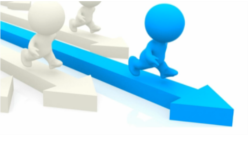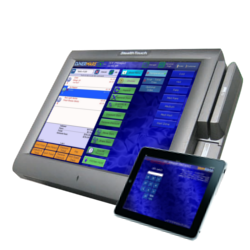We’ve discussed at length the various modules available within most POS systems, but we have not addressed the central question: Why buy a point-of-sale system at all?
Is it a necessity or a convenience? What factors should I consider when taking the first steps towards purchasing, or considering the purchase of, a POS system?
The first thing you will discover when you dip your toes into the world of POS systems is that there are a LOT of options out there. There are do-it-yourself POS systems, there are giant corporate-based POS systems and just about anything you can imagine in between. Before deciding which is best suited to your needs, you have to understand what it is you hope to achieve. It’s a familiar refrain by now, but no one knows your business like you do, and no POS dealer can tell you as precisely as you can which gaps in your business model a POS system will fill. Know your operations, better than anyone else. If this is a new business, even before you hire your staff and order your supplies, you should know precisely how the business will operate. Will it be cashier-based, or will you be doing server banking? Follow the process of a customer entering your restaurant until the time they leave. What will you do differently than other businesses that offer similar services? How will your POS system need to adapt to this? Once you can answer any question about how your business operates, you will be ready to expertly determine how a POS system will integrate into your model!
The first question is the most obvious: Do I need a POS system at all? What about the generations of businesses that have succeeded based on non-web-based cash registers? There is certainly a nostalgia affixed to the notion of the small business with a single cash register on a counter, nothing fancy about it, but perfectly serviceable. If you believe that you, the owner, will be the only one to stand behind that register, handling every dime that crosses the counter, I would say that is a viable model. Assuming you would have a hired employee handle your money, this model has become outdated. As a colleague of mine once stated, if you’re using a cash register between several employees, you should save your money on the register and use a cigar box. There is just as much accountability in that cigar box as the cash register… the register only provides the illusion of accountability. This is the single biggest reason to invest in a POS system. Using security measures we’ve discussed before, only a POS system can manage your inventory and sales in a cohesive way, holding historical data in an easily reportable manner. You could maintain records by hand in a journal, but even this solution doesn’t provide the at-your-fingertips accessibility of data that may be months or years old. Your POS system will not only provide sales data, but time and attendance information that is, in some cases, necessary to resolve a discrepancy; for example resolving employee pay disputes. The big takeaway here is that your POS system not only tracks what’s being sold, who’s working, what’s on the shelves, etc., it remembers it all – forever. And, it allows you the luxury of recalling any of that information at any time.
Along with accountability comes control over your operations. Do you use discounts? Do you have happy hour specials? All of this can be explicitly defined within a POS system, and, further, be limited to certain types of users. You can open up functionality to your managers while limiting access to servers or retail staff in a number of ways. Reporting also allows you to monitor all activities, giving you a global view of your operations that pen-and-paper or cash register-based businesses simply can’t match. Want to make it so your employees can’t clock in early? That can be automated through your POS. How about inventory tracking? With a little programming and time, you can literally account for every penny coming in and out of your business in a succinct way that allows for forecasting and historical reporting in as convenient a way as possible. Gone is the cash register “illusion of control” we discussed earlier, and now you have a real-time method of controlling access, reporting and operations.
 One of the biggest benefits is less tangible than our first two topics – competitiveness. Because a POS system often increases productivity, you are able to streamline your business in a way that other businesses cannot match. Beyond the usual POS offerings, almost every POS system on the market offers plug-ins and third-party offerings that further increase the efficiency and utility of the system. If there’s something you want your system to do, chances are someone has developed a program for it. This sort of flexibility gives you the ability to adapt and grow as consumer tastes and trends change. As is often said, the only constant is change, and being able to change with the times is key to keeping your business growing. Computer-based POS systems give you the ability to update and add and subtract features that make your business as adaptable as any competitor’s. Corporate and small business trends suggest further integration in the coming years, not less, and those businesses that reject this model run the risk of finding themselves far behind the times in terms of competitiveness. Whether it’s kiosk-based ordering or online transactions, PC-based POS systems give you opportunities to follow the behaviors of your customers onto the web.
One of the biggest benefits is less tangible than our first two topics – competitiveness. Because a POS system often increases productivity, you are able to streamline your business in a way that other businesses cannot match. Beyond the usual POS offerings, almost every POS system on the market offers plug-ins and third-party offerings that further increase the efficiency and utility of the system. If there’s something you want your system to do, chances are someone has developed a program for it. This sort of flexibility gives you the ability to adapt and grow as consumer tastes and trends change. As is often said, the only constant is change, and being able to change with the times is key to keeping your business growing. Computer-based POS systems give you the ability to update and add and subtract features that make your business as adaptable as any competitor’s. Corporate and small business trends suggest further integration in the coming years, not less, and those businesses that reject this model run the risk of finding themselves far behind the times in terms of competitiveness. Whether it’s kiosk-based ordering or online transactions, PC-based POS systems give you opportunities to follow the behaviors of your customers onto the web.
Speaking of the web, the fact that these POS systems exist in an online space gives you, the owner, another benefit – web-based support. In the old days of our own business, providing support meant driving to our clients’ stores to perform maintenance. Depending on the distance, even a minor problem could take hours to resolve. Now, with the ability to provide support over the web, even serious issues can often be resolved in a matter of minutes, sometimes before your customers realize there was a problem at all. Additionally, this web-based POS environment allows you remote access in the same manner as your support staff. Imagine the luxury of being on vacation, and still being able to dial into your business check sales and labor for the day, all without having to make a phone call or step away from your laptop. As more and more data moves to the cloud, expect this level of accessibility to increase.
There is no way to accurately predict market trends over the next decade, but you can lay safe money on the idea that technology will only continue to wrap itself around our day-to-day operations. With a POS system, you’re securing your business for the future, giving yourself access and your support team access, and providing an unmatched degree of control over your revenue. Armed with the knowledge of your particular needs, the variety of POS systems available gives you the freedom to find an ideal solution to your particular needs.

